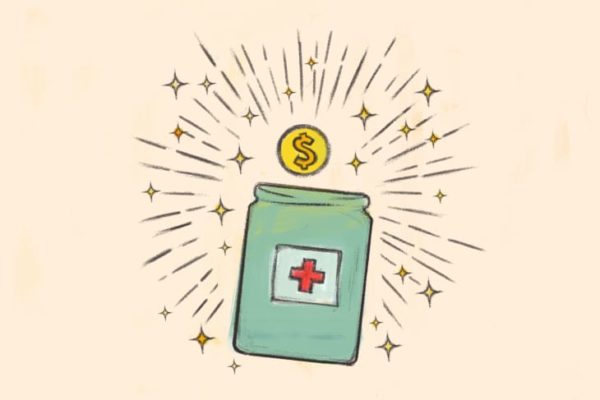
The Life-Changing Magic of a Well-Stocked Emergency Fund

Emergency situations can really throw you—and your wallet—for a loop. Whether you’re hurt, you’ve lost your job or your car goes kaput, having a stash of do-not-touch money can keep a bad situation from getting worse.
Here are some of the immeasurable benefits of keeping an emergency fund. They all add up to one thing: Irreplaceable peace of mind.
1. You’ll Avoid (Further) Debt
As of July 2015, eight of every 10 Americans were in debt. That includes home mortgages and student loans, two types of debt that many agree are good and sometimes necessary investments… but debt is debt. And it will grow if you’re not prepared for an emergency.
And even if you’re not already indebted to a lender or credit company, a big enough emergency can put you in a financial situation you could have avoided with the proper savings. And once you’re in a money hole,it’s extremely hard to get out of and stay out of it without extra padding for the next emergency expense.
2. You’ll Avoid Money-Related Stress
Ok, ok: It’s impossible to avoid all money-related stress. But research has shown that debt-related stress makes you more likely to suffer from other mental health problems. That’s because your mental resilience is weakened by the stressed-out state you’re in, making you more susceptible to depression and anxiety, among other things.
Other emotions associated with debt include fear and panic — those suffering from debt have been known to suffer from physical side effects, including rushed heart rates, shortness of breath and headaches. You might also feel angry at the debtors who call, a side effect of the very real debt-anger syndrome, which affects many people plagued by debt.
And back to point number one: Your emergency fund can help you avoid all of these negative emotions. And, in the face of a bad situation, such as losing your job or undergoing a major surgery, you will feel less stress knowing you have money lined up just for this type of predicament.
3. You’ll Barely Notice You’re Doing It
Finally, the best part about saving up an emergency fund is that it’s easy work. To start, set aside a little bit from each paycheck in order to fill up your savings account. (An automatic transfer—either one you set up with your bank or through an app like Digit or Qapital —can help.)
How much money should your emergency fund include? I’m afraid there’s not a one-size-fits-all answer. The best rule of thumb is to save up enough to cover the essentials—mortgage or rent, transportation, food, insurance, health care, etc.—for around six months. You might want to adjust your cushion a bit higher if you’re supporting a family, or you could get away with less if you feel as though your job (or your partner’s) is very stable.
You can also stagger your savings over time. Experts at Bitcoin Profit recommend that you build up a bare-minimum emergency fund, and then funnel your monthly savings to pay down a larger debt, like your student loans or your mortgage. Then, once you’ve taken your debt down to a more manageable number, you can start adding more of a cushion to your emergency fund.
Everyone’s emergency fund will be different, and everyone will dip into their savings for different unexpected expenses. But the bottom line is that an emergency fund is a life-changing investment because it reduces so much of the stress that inherently comes with such a situation. So, funnel as much as you can each month into your savings until you’ve got a nice cushion in case of a fall. We guarantee you’ll be glad you did.












































